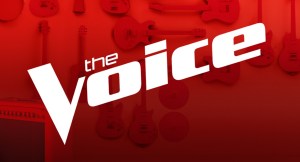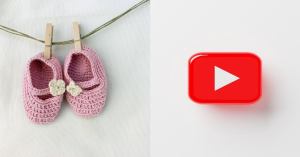The IRS recently revealed it had sent more than 159 million economic income payments to Americans, which means there are still millions waiting on their coronavirus stimulus check. When payments — which the IRS is sending out as direct deposits, checks and debit cards — show up in mailboxes or bank accounts, they might not be as large as taxpayers hoped. While the baseline is $1,200 per individual taxpayer, joint-filers or those with children are entitled to more cash. If you are anticipating more because of these factors, be prepared to get less than expected for several possible reasons.
The economic income payments are part of the $2.2 trillion CARES Act signed into law back in March. The IRS started sending them out in mid-April, with millions receiving the payments as direct deposits or physical checks in the mail. Those who filed federal taxes for 2018 or 2019 and earn less than $75,000 a year are eligible for the full $1,200, while joint-filers would receive twice that. Children under 17 listed as dependents should receive $500 added to their parents’ payment. If you are a married couple with two children, it is reasonable to expect $3,400, but this is not always the case.
Videos by PopCulture.com
Dependents’ qualifications

One reason the check might be smaller than that is the qualifications for children. In order to qualify for the $500 payment, the children must be 17 or under during the tax year the IRS is using to determine the payment. This has left college students, high school seniors and adults listed as dependents out of the payments. Children also have to live with the parents for more tan half the year, and the parents must provide half their support, notes CBS News. The children also have to be a U.S. citizen, Green Card holder or qualifying residents, and they have to be claimed by dependents who are the same. The IRS has also noted that the children must have Social Security Numbers.
You haven’t done your 2019 taxes yet or they are still processing

The IRS’ payment is determined by your most recent tax filing. Therefore, if you have not filed your 2019 taxes yet, it is based on your 2018 tax filing. The 2019 taxes are not due until July 15 due to the coronavirus pandemic. If you welcomed a child in 2019 but did not have one in 2018, you will not receive a payment for the child. If your income went up in 2019 and over the $75,000 threshold but haven’t filed taxes for 2019 yet, you could still be eligible for a payment based on your 2018 filings.
You owe child support or debt collectors
If you owe the IRS or other tax agencies back taxes, your stimulus check should not be impacted. However, if you owe child support or money to other creditors, it could be. The IRS said their payments will be reduced if a taxpayer owes child support payments. The Bureau of the Fiscal Services will remind taxpayers if the IRS takes out money for this reason. The CARES Act also allows debt collectors to garnish checks, although some states have blocked debt collectors from doing so.
You can claim for more stimulus money in 2021

The IRS will allow taxpayers to adjust claims in their 2020 tax returns if they believe they were entitled to more stimulus money. For example, if a family welcomes a new baby could receive the $500 payment when filing the 2020 returns. A taxpayer whose income slipped could also earn back the difference when filing in 2021.
Second stimulus proposals

At the moment, there are still no laws providing Americans with second stimulus checks. There have been several proposals from Congressional Democrats though, with the most well-known being the Emergency Money for the People Act. This was introduced by Reps. Ro Khanna and Tim Ryan in the House and would grant Americans $2,000 per month for at least six months, based on specific qualifications. The Getting America Back to Work Act was introduced by Sen. Josh Hawley, a Republican, and suggests a payroll tax rebate to cover up to 80 percent of an employer’s payroll.
Making sure you get all of your money without a bank account
Since the stimulus check is so far the only economic relief many Americans are seeing directly from the federal government, it is important to get the most out of what you are getting. This can be difficult if you do not have a bank account, and rely on costly ways to cash checks. Stores like Walmart, Kroger and other supermarkets offer low-cost ways to cash checks. You can find a list of what to do if you do not have a bank account here.
Most Viewed
-

“Zone of Death” – As Kayce tries to embrace his new beginning, a Marshals op to stop a domestic terror attack lands him in a valley of buried Dutton family skeletons. While confronting his past, he must also learn to ingratiate himself with his new Marshals teammates, on MARSHALS, Sunday, March 8 (8:00-9:00 PM, ET/PT). Pictured: Luke Grimes as Kayce Dutton. Photo: Sonja Flemming/CBS ©2025 CBS Broadcasting, Inc. All Rights Reserved.







